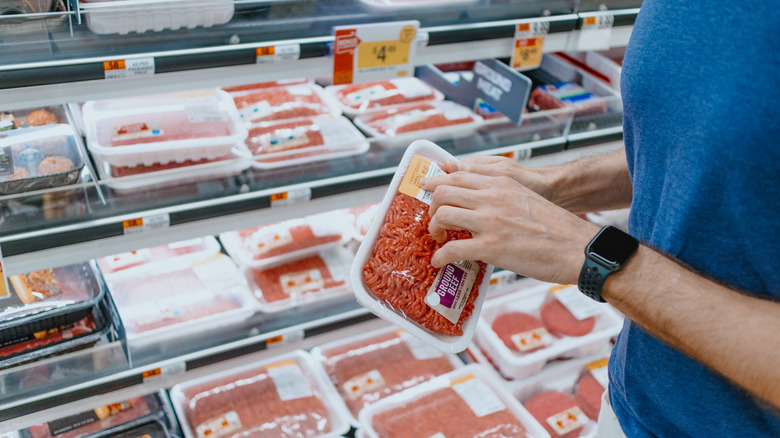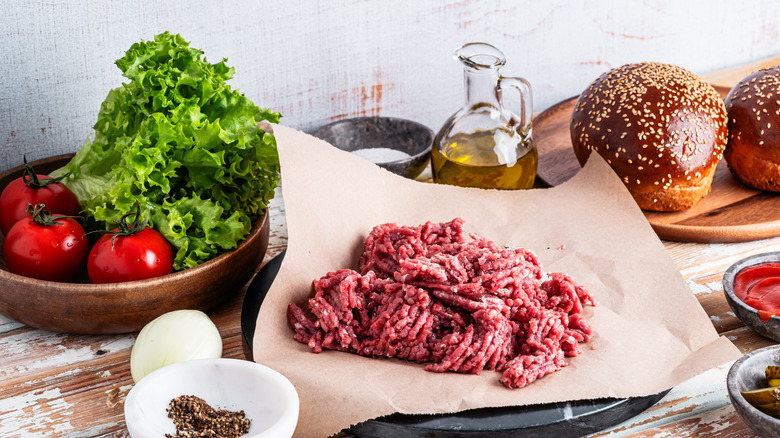Why You Should Avoid Buying Ground Beef Packages With Too Much Juice
Ground beef has the perfect texture for stuffing into street tacos, quesadillas, and shepherd's pie. But there's no getting around it — to make any of these dishes with this protein, you're going to have to start off with raw meat. Before you dump your beef in the pan and start cooking, it's important to follow safe practices to make sure you (and your loved ones) don't end up with a foodborne illness.
One of the best ways to stay safe with this type of protein in the kitchen? Buy a package with minimal juices. The more liquidy your container is, the more likely you'll spill raw meat fluids on the counter, the sink, other ingredients, or your hands. If this type of cross-contamination occurs, you can end up transferring bacteria all around your kitchen, and increasing the likelihood that someone will get sick. Simply storing your ground beef in the fridge until you're ready to use it isn't enough to kill all the potential germs it contains, and some strains of E. coli can even multiply in the fridge. But by purchasing a package with minimal liquids, you can reduce the risk of errant juices and cook your beef to a minimum safe-to-eat temperature of 160 degrees Fahrenheit.
Other ground beef safety guidelines to keep in mind
Once you've purchased a package of ground beef without excess juice, you're well on your way to cooking it safely. But there are a few other things to keep in mind to help prevent your family from getting a foodborne illness. Pick meat that's as bright as possible, since browning raw beef can mean that it's starting to go bad. And while the sell-by date can give you a general idea of how long your protein has been sitting out, it doesn't always tell you the right timeframe for when it's safe to eat. When you get home from the grocery store, throw your package in the fridge right away, and try to use or freeze it within two days to avoid spoilage.
Just like you don't want to pick meat that's swimming in too many juices, you should also never rinse it before cooking it. Doing so will distribute all those potentially harmful liquids all over your sink and hands, and could potentially spray them onto any food or dishes sitting nearby. Instead, try to keep your package as contained as possible. Place it in a plastic bag while it's in the fridge in case of any leaks, and wash any cooking tools it touches before reusing them.

